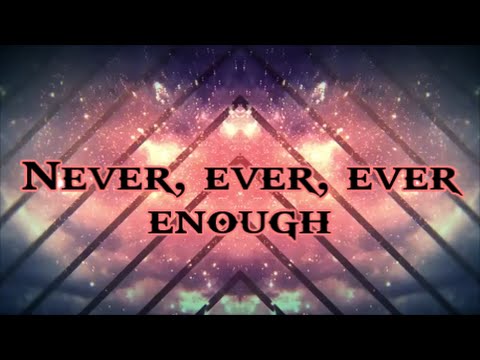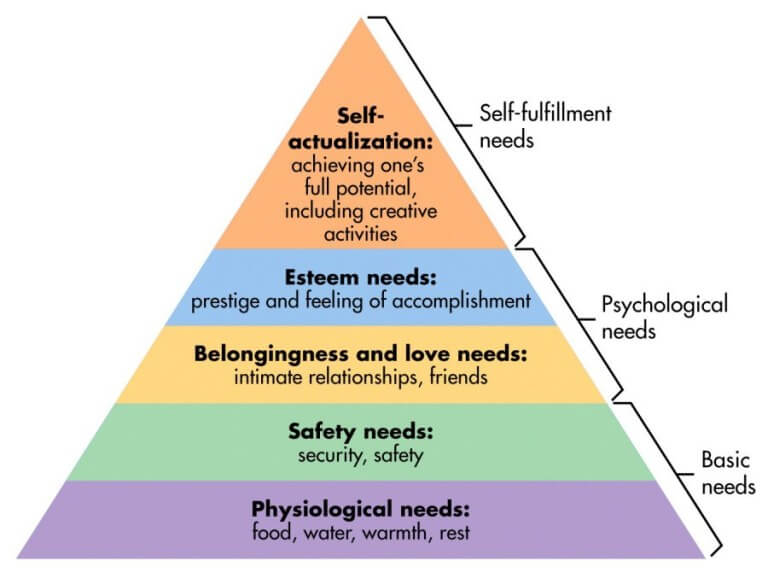How much is too much? Musings on Florence and the Machine “Too Much is Never Enough” as applies to businesses and wealth.

So recently I met a highly successful businessperson in their late 40s. As they told their story as an entrepreneur, they had earned amazing wealth by their late 20s, then moved continents and made 10x that much again within a few years, only to find they had reached such a high profile that politics stepped in and they had the feeling of losing it all. This individual is quite brilliant at business and so has gone on since then to once again be highly successful.
However, what do we mean by the word “success”? Is it all about making money and using that money to buy material things? Or, as this person explained, for them they do love to build businesses and so that means they make money, but since their tough experience with their first success, they look at success differently now.
This did get me thinking.
Meeting our Basic Needs How Much is Too Much?
To start with, let us all recognise that such a conversation is one that comes from a place of privilege, for people who know they can always meet their basic needs. For so many in the world there is a daily struggle for this and so, so many around the world, even if on the surface all seems well, are anxious in the knowledge that they have no savings, often have real debt, so are only a few pieces of bad luck away from real and desperate need.
The basics of this were written about brilliantly by Abraham Maslow and his pyramid, as I’ve written about often in different contexts, including this article.

So, assuming one is comfortably above the first two tiers of the pyramid, ie our basic needs are met, let us look at how we tend to focus on our needs above that level in the developed world.
Having more than “Enough”
I am a citizen of two countries, one of them being the Cayman Islands, where I lived for most of my adult life. It is a country with no direct taxation. In terms of meeting needs, then, the high levels of indirect tax make it a very expensive place to live and to meet your basic needs. However, once those needs are met, the government takes no money at all from you from what you earn, it is all yours to do with as you wish. No income tax, capped contributions to pension plans etc.
I guess we all live in a bubble, but I do feel that when I go back to Cayman, so many of those who earn well above the basic needs level are almost constantly in a state of meeting their psychological needs by buying “stuff” rather than otherwise meeting those needs by other forms of fulfilment.
Sure, this is a highly common issue globally, this materialistic society that is common among Baby Boomers and Gen X’ers in particular, seeking to live differently from the rationed post-war generations of their parents. I simply note from my own direct experience that it still seems to remain this way in Cayman, even with the younger generation coming through.
It feels to me that so many have more than enough but don’t recognise it.
So, how much is “Enough”?
I’ll link here to Chapter 1 of a book called “Your Money – The Missing Manual“, which goes into depth on this including anchoring on the Fulfilment Curve. One story that it quotes:
“Kurt Vonnegut used to recount a conversation he had with fellow author Joseph Heller (Vonnegut published this anecdote as a poem in the New Yorker). The two writers were at a party thrown by a billionaire when Vonnegut joked, “How does it feel to know that our host makes more in one day than Catch-22 [Heller’s best-known work] has made in its entire history?” Heller responded, “I’ve got something he can never have. I’ve got Enough.””
Consciously choosing what matters
Now, this chapter of the book does talk a lot about how difficult it can be to define “how much is enough”. What I’d take from the writing overall is that simply bringing awareness to this topic can support us in finding our own unique answers.
One individual I was inspired by about a decade ago is Chris Guillebeau. Again, an excerpt from the book chapter (which dates back to 2010):
“Chris Guillebeau takes conscious spending to an extreme. At 32, he’s defined what’s important to him and is willing to make sacrifices to be sure his spending is aligned with his goals and values. One of his ambitions is to visit every country in the world by his 35th birthday. (As of this writing, he’s visited 124 of 192 countries, and he’s got 3 years to go.). Travel is expensive, so in order to meet his goal, Guillebeau has made it his top priority. “Some people think I’m crazy,” he says. “I don’t own a car, so I walk everywhere. I don’t even like spending a few bucks to use public transportation. But I spend thousands of dollars to fly all over the world.”
By doing without the things that aren’t meaningful to him—like a car—Guillebeau can afford the things he’s passionate about.”
What matters to me?
Back to the top, I recognise my good fortune in knowing I have and will always be able to have my basic needs met. Given that, though, what is “enough” to me?
When people visit my apartment in London they often ask: “where is all your stuff?”.
Well, apart from an always growing collection of books, the answer is “this is it, I don’t have much stuff”. I consciously chose some time ago to limit how much “stuff” I own to what I truly need. I own my stuff, it doesn’t own me.
To that end, as an example, I no longer own a car. Sure, in London I don’t really need one, but even so, it is truly freeing to have one less possession.
What does matter to me then?
People, relationships, ideas, helping others, looking to try to help others reach their full potential.
I’ll, therefore, take the money I earn beyond my basic needs to go and meet people, learn, exchange ideas, have collective experiences, join and commit to intiatives, projects, movements for change and impact.
I’ve got more than enough “stuff” to allow me to live day to day, I also make sure I guard my time and the quantity and nature of work I do so that I have time and space to do what matters to me.
I’ve got enough, though I’m not sure I could ever have enough in terms of learning, sharing and being inspired by others.
Like Florence and the Machine muse, perhaps “Too Much is Never Enough”
